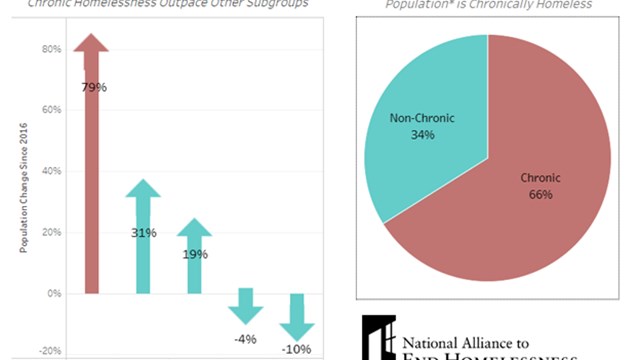In New York City, you can have just about anything delivered to your door at any hour of the day or night. Food, furniture, entertainment; you name it, you pay for it, and you got it. This is a city where convenience and efficiency are valued almost as much as square footage and lush views of Central Park. And with the average price of a new one-bedroom reaching $1 million, it should come as no surprise that co-op or condo buyers are beginning to expect something more than just a nice address and shiny new appliances when they move into their new digs.
If you're in the marketplace, you're probably familiar with some of the amenities buildings today often use to entice buyers. Many offer on-site fitness facilities, individual laundry or storage units and community rooms and lounges. It's important to note, however, that many of the newer swanky extras are to be found in new construction. The reason is simple, says Kathy Mayer Braddock of Braddock + Purcell, a real estate advocacy and referral firm based in Manhattan: it's space.
"In the older buildings, you might have a gym or possibly a pool. The practicality of installing these things in older buildings is questionable, because once they've already been built out, it's hard to go back and rearrange."
These days, though, formerly luxurious bonuses like SubZero refrigerators and high-speed Internet access are only the tip of the iceberg and are even becoming de rigueur as more and more services are value-added to cater to the buyer's every whim.
According to Mercedes Menocal-Gregoire, a long-time broker with Stribling & Associates, a brokerage in Manhattan that specializes in luxury properties, "If, you buy something in the north tower of the Time Warner building at Columbus Circle, you're part of The Mandarin Hotel. You can pay an extra fee and get the same hotel services as guests at the Mandarin: maid service, three times a day, room service from all the restaurants in Time Warner Center, access to the spa and the pool in the hotel. You have full concierge service. They'll make reservations for you to go to the moon if you have to."
Trump Park Avenue is another luxury condo offering hotel-style amenities to its owners. When the Venetian restaurant Cipriani opens in the winter of 2005, Trump residents will receive the benefits of daily room service.
According to Jane Gladstein of Metropolitan Housing Partners - the developer who, along with financing from Apollo Real Estate, is behind 505 Greenwich - the hip condominium in SoHo's western reaches will have the feel of an Asian-inspired spa throughout, incorporating natural stone, burnished copper, and black bamboo, and the fully-finished apartments will have top-of-the-line Viking and SubZero major appliances ready and waiting for move-in day.
But luxurious as that sounds, it's not what sets 505 Greenwich apart from other swank new buildings downtown. Residents will have the use of their own private mini wine cellars as well as the benefit of 24-hour concierge services at the front desk, and the convenience and luxury of an in-house pet spa for their furrier family members. According to Gladstein, pet owning residents can either use the spa's services to beautify their companion animals, or the concierge can arrange for a professional groomer to come in and do it all for them.
Right next door to 505 Greenwich at 497 is the eye-catching, undulating glass façade of the Greenwich Street Project. Behind the iceberg-like exterior skin are not only spacious living quarters, but an in-house art gallery, full gym and spa with an "infinity pool" for lap-swimming, a private movie screening room, a full wine cellar, and a duplex apartment that can be reserved for lucky out-of-town guests when they come to call on full-time residents.
Another condo project with unusual offerings is Downtown by Philippe Starck. The 326-unit condo will occupy the old J.P. Morgan building at the corner of Wall and Broad Streets in Lower Manhattan (right across from the New York Stock Exchange), and along with ever-changing plasma-screen projections in the chandeliered lobby, will also boast an Olympic-sized swimming pool, a private screening room, a full-service health club and a common terrace that will feel like a mini-park high above the bustle of the Financial District below. Along with all that, Downtown will also boast the first private bowling alley in a residential building. According to the Sunshine Group, the marketing and sales agent for the project, prices at Downtown range from $470,000 for an alcove studio to $2.64 million for a two-bedroom, two-and-a-half bathroom apartment with a terrace.
And rental buildings are also getting creative with the perks they offer residents. The Westport, at 500 W. 56th St. in Manhattan brags a half-court basketball area, maid and valet services, a sundeck and "party lounge." Other rental buildings are starting to offer 24-hour concierge services, in-house dry cleaning facilities, gym memberships, and spas.
Okay, so maybe you're perfectly happy brushing Fifi's fur in the privacy of your own home. But what if your new apartment included a car? Having a car in New York City is often more trouble than it's worth, and renting wheels just to run errands on a Saturday seems silly.
Enter the concept of on-site car borrowing. What if you could simply "check out" a car for a few hours whenever you needed it? In the expanding market of co-op and condo luxury, the idea is starting to catch on. Here's how it works: Unlike a rental company which has a fleet of vehicles parked in one lot, car borrowing companies have cars parked in strategic spots around the city. Some are in designated spots in public lots, while others reside in the lots within or adjacent to co-op or condo buildings. Customers go online or pick up the phone and register with the company, after which they can reserve cars for as little as a half-hour.
One such company doing business with co-op and condo buildings in New York is Zipcar. After they set up their membership, Zipcar customers are issued a membership card with a microchip embedded in it. Then, when the customer wants to use a car, all they have to do is call or log on to reserve it, then go to the nearest lot, wave their card over the windshield, and the car unlocks itself and is ready to go. The keys are in it, gas is paid for, mileage is included and customers can park free in any reserved ZipCard spot - of which there are 12 in Brooklyn, one in Long Island City, and more than 60 in Manhattan. For $8.50/hr or $65/day, Zipcars are marketed to people who just need a car for a little while and don't want the hassle of going through a rental agency.
Needless to say, property owners and co-op boards are getting excited about the possibilities that companies like Zipcar provide. According to Roz Goldfarb Associates, Zipcar's New York City marketing representative, "Adding a Zipcar to your building is like adding a laundry room - and it's more valuable to some residents than free parking. One car can service up to 30 people. That's a lot of happy tenants - not to mention the impact you'll have on the neighborhood's parking woes."
So you got your cat's claws trimmed, swam a few laps in your building's infinity pool before work, and booked the communal car for a run to IKEA on Saturday. What's next? Well, how about a personal assistant? Given the harrying pace of life in the city, recent years have seen a boom in companies offering assistant and concierge services to both individuals and entire building communities. These companies claim to be able to snag impossible-to-get reservations and events tickets, but will also pick up your dry cleaning and walk your dog if you're caught late at the office.
Though the idea of on-call assistants for busy individuals has gained a lot of momentum lately, it's not a totally new idea. "Years ago," says Braddock, "the chairman of Insignia (now part of Douglas Elliman .ed) put something called Edifice Rex into residential buildings. It was a really high-speed concierge service in all the apartments Insignia managed - a lot of thought and money went into it, but in the end it didn't go anywhere because it was a little ahead of its time."
Even now, says Braddock, full-time, handle-everything concierge services can take a while to catch on with building residents.
"Some of these services are interesting as marketing tools, but in practicality, they may not always be used. In Manhattan in particular, you're not living on a desert island; you can call your local delivery service and they'll come and bring you something. I can call a home store from my office on 51st Street and tell them I need a coffeepot for $19.99, and they'll deliver one."
But what about those overdue library books you can't seem to get around to returning? Bernard Lewis, the president of Clones Errand and Personal Concierge Service, a relatively new company based in Lake Success, New York, says his firm provides another "you" by taking care of all the little things that a busy person either doesn't have time for or doesn't want to take care of themselves; right down to taking parking ticket payments to the DOT or yes, returning library books. According to Lewis, more and more boards and managing agencies are interested in utilizing concierge service providers.
"Co-op and condo buildings are interested in our services in order to separate themselves from the competition and retain their current tenants," says Lewis.
But what does it cost to send a proxy across town with 15 pounds of overdue reading material? Because the needs of the individual client differ so much, it's tough to give even a ballpark cost estimate for bringing in a high-end concierge service, but according to Lewis, "the services we offer are based on the number of people in the building and what sorts of services they're looking for. Once we know that, we can then determine whether we'll work on-site or off. We usually set up a toll free number for residents and it works basically like a concierge service for a hotel."
Some of the services offered by concierge companies - like borrowing jewels from Cartier, or arranging for Earth, Wind & Fire to perform at your nephew's bar mitzvah - are for high-end condo owners, but Lewis says more and more mid-level property owners are interested in what these companies can do for them. "This kind of service is not necessarily a luxury item anymore."
Braddock agrees, but adds that in a city of entrepreneurial young people and busy people allergic to hassle, "You can find a graduate student who'll be happy to work for $15 an hour for a few hours a week doing errands - anybody who wants to allocate $80 a week can have this for themselves. So it's not just the super-wealthy who can have it. If you want to have it done, you can get it done."
While concierge services and loaner cars may not be available to your building at the moment, don't be surprised if they come your way soon.






Leave a Comment